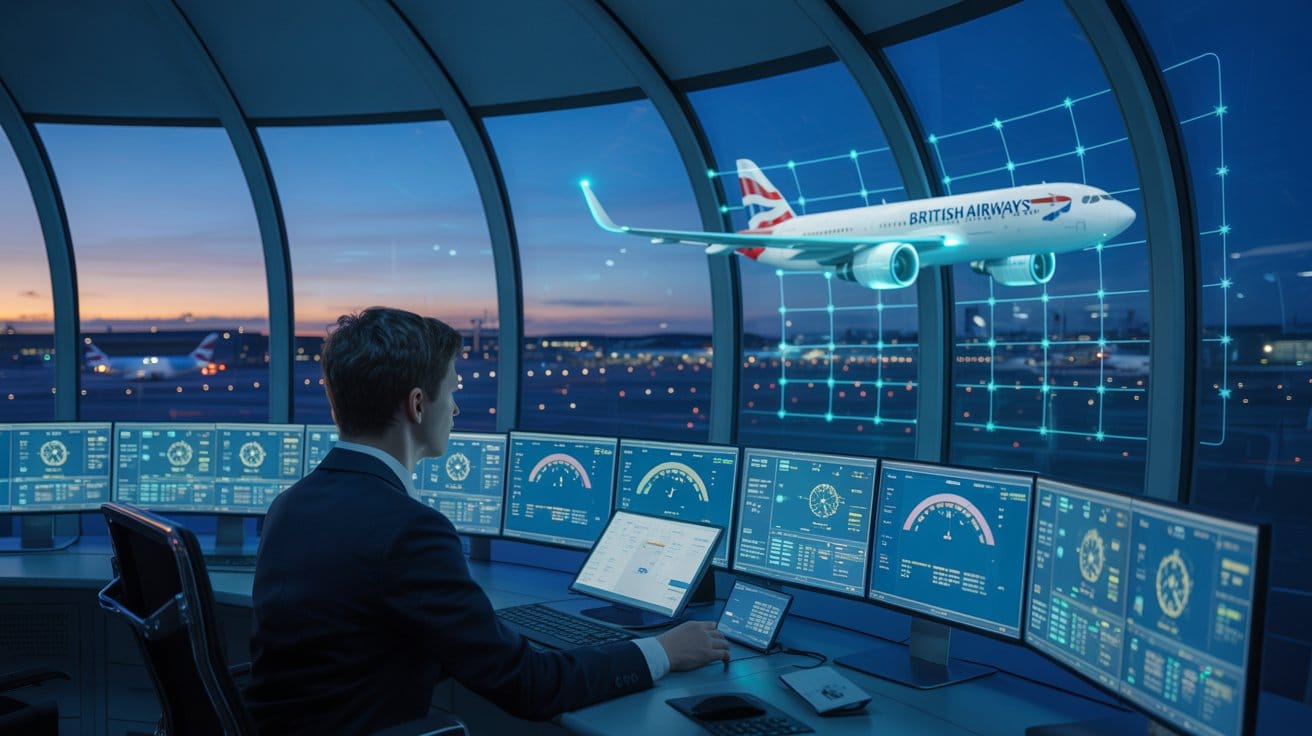The Promise of AI: Tackling Post-Pandemic Flight Disruptions

Since the COVID-19 pandemic, the global aviation industry has faced unprecedented challenges. Among the major carriers, British Airways (BA) has been particularly affected by a surge in flight disruptions, including delays and cancellations. As the world transitions into a post-pandemic era, the airline’s leadership has turned to advanced technology—specifically, artificial intelligence (AI)—as a potential "game-changer" to address operational inefficiencies and restore customer confidence.
The Post-Pandemic Landscape: British Airways’ Struggles
The pandemic’s aftermath has left British Airways grappling with a complex array of operational challenges. As travel restrictions eased and passenger demand rebounded, the airline industry was ill-prepared for the sudden surge. British Airways, once lauded for its punctuality and reliability, found itself at the epicenter of disruptions.
| Year | Total BA Flights | Cancellations (%) | Delays > 15 min (%) | Passengers Affected |
|---|---|---|---|---|
| 2019 | 287,000 | 1.2 | 18 | 45 million |
| 2022 | 241,000 | 4.6 | 29 | 38 million |
| 2023 | 250,000 | 3.9 | 25 | 40 million |
The numbers tell a clear story: while flight volumes have not yet returned to pre-pandemic levels, the rate of cancellations and delays has nearly doubled since 2019. In 2022 alone, over 1.7 million BA passengers were directly affected by cancellations, with millions more experiencing significant delays.
The reasons for these disruptions are multifaceted:
- Staff Shortages: Mass layoffs during the pandemic left BA with a depleted workforce, particularly in ground operations and cabin crew.
- Aging IT Infrastructure: BA has suffered several high-profile IT failures, including a notorious 2022 outage that grounded hundreds of flights.
- Supply Chain Issues: Delays in aircraft maintenance and spare parts have exacerbated operational bottlenecks.
- Air Traffic Control Constraints: Post-pandemic, European airspace has become more congested, with frequent ATC strikes and weather-related disruptions.
The cumulative effect on passengers has been severe. According to a 2023 survey by Which?, BA ranked among the lowest for customer satisfaction among UK airlines, with frequent complaints about poor communication during disruptions and slow compensation processes.
British Airways’ AI Ambitions: A “Game-Changer”?
In early 2024, British Airways’ CEO Sean Doyle publicly declared that artificial intelligence would be a "game-changer" for the airline, promising a new era of operational efficiency and customer service. Doyle’s vision is ambitious: leveraging AI to predict and prevent disruptions, optimize crew and aircraft scheduling, and enhance real-time communication with passengers.
The aviation industry has long experimented with digital transformation, but the post-pandemic urgency has accelerated AI adoption. Airlines such as Delta and Lufthansa have already reported measurable improvements in on-time performance and cost savings through AI-driven solutions.
| AI Application | Description | Reported Benefits | Example Airlines |
|---|---|---|---|
| Predictive Maintenance | AI analyzes sensor data to predict equipment failure | Fewer unscheduled repairs, lower costs | Delta, Lufthansa |
| Crew Scheduling | AI optimizes crew rosters based on availability | Reduced delays, improved morale | British Airways (pilot), United |
| Disruption Management | AI models simulate scenarios to minimize impact | Faster recovery from disruptions | KLM, BA (trial) |
| Customer Communication | AI chatbots and notifications for real-time updates | Higher satisfaction, reduced call volumes | Air France, BA (trial) |
British Airways’ AI Implementation: Progress and Challenges
British Airways has embarked on several AI-driven projects:
- AI-Powered Operations Control Center: In 2024, BA launched a new operations control center in Heathrow, integrating AI algorithms to monitor flight status, crew availability, and weather patterns in real time.
- Predictive Maintenance: BA is piloting AI tools to analyze aircraft sensor data, aiming to preemptively identify maintenance needs and reduce unscheduled groundings.
- Dynamic Crew Scheduling: Advanced algorithms are being tested to optimize crew assignments, factoring in legal rest requirements, skill sets, and last-minute absences.
- Passenger Communication: BA has rolled out AI-powered chatbots and automated notifications to keep passengers informed during disruptions.
While it is too early for comprehensive data, initial reports suggest modest improvements:
- Reduction in Average Delay: BA reported a 7% reduction in average delay times on AI-managed routes in Q1 2025 compared to Q1 2024.
- Faster Recovery: The time taken to rebook passengers after a disruption has decreased by 15% on routes using AI-driven rebooking tools.
- Improved Customer Feedback: Preliminary surveys indicate a 10% increase in customer satisfaction scores related to communication during disruptions.
However, these gains are not yet uniform across the network, and significant challenges remain.
A Necessary but Incomplete Solution
British Airways’ investment in AI is both necessary and strategically sound, but it is not a panacea. AI can deliver substantial operational improvements, particularly in disruption management and resource optimization. However, the airline’s deeper structural issues—aging infrastructure, staff morale, and regulatory constraints—cannot be solved by technology alone.
To truly be a "game-changer," BA must pair its AI ambitions with parallel investments in IT modernization, workforce development, and customer service culture. Otherwise, AI risks becoming a high-tech bandage on a deeper wound.
British Airways stands at a crossroads. The post-pandemic surge in flight disruptions has exposed vulnerabilities in its operations, IT systems, and customer service. AI offers a powerful toolkit to address many of these challenges, and early results are encouraging. However, the road to recovery is long, and success will depend on BA’s ability to integrate technology with broader organizational change. If executed well, AI could indeed help restore BA’s reputation for reliability—but only as part of a holistic transformation.
